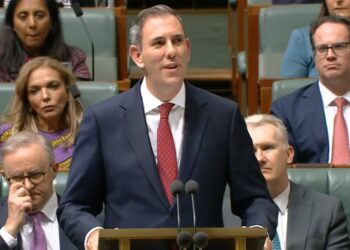New research released on Thursday by the Financial Services Council (FSC) revealed that if the Quality of Advice (QAR) review results in the implementation of a scaled advice model and other reforms to simplify advice, the number of Australians with life insurance cover would increase by 12 per cent or 432,000 Australians.
The research, conducted by NMG Consulting and commissioned by FSC, suggests that conversely the ‘do nothing’ approach would result in a decrease in life cover for 612,000 Australians.
Commenting on the findings, FSC CEO Blake Briggs urged the government to grasp the “rare opportunity” created by the QAR to deliver affordable and accessible advice to consumers.
“FSC research shows how the unmet life insurance needs of consumers can be addressed by comprehensively reforming the regulatory framework, not just tinkering with it,” Mr Briggs said.
“If nothing changes, the number of life insurance policies held by Australians is set to reduce by 17 per cent in the next five years, leaving Australians without cover when they need it,” he noted.
According to the FSC, comprehensive reform of the advice framework is needed, a level of reform that, it said, has largely been reflected in Michelle Levy’s proposed ‘good advice’ framework released for consultation in the review’s proposals paper.
The changes that the FSC is throwing its weight behind include abolishing statements of advice and replacing them with a simpler ‘letter of advice’; breaking the link between financial products and advice; and abolishing safe harbour steps for complying with best interests duty.
“These insights suggest the benefits that a reformed financial advice framework can have across the broad range of financial services that consumers must navigate, from superannuation savings, to investing for the future for themselves and their families,” Mr Briggs said.
Moreover, the FSC’s research also found that commissions on advised life insurance remain an important component of adviser remuneration.
As such, the body noted that removing commissions would reduce advised life risk sales by 60 per cent and increase lapse rates.
“By 2027, this would result in a 32 per cent decline in the overall number of in-force advised life risk policies, significantly increasing the Australian underinsurance gap,” the body noted.
“Simplifying the provision of life risk advice with both a simplified comprehensive life risk advice and a simpler way of delivering risk advice will steadily increase the number of new life risk sales, and slowly reduce Australia’s underinsurance gap each year. The simplification of comprehensive advice is expected to improve adviser efficiency by 32 per cent,” it concluded.




The life industry has zero chance of recovery unless commissions again approach 100% (yes, NOT 80%) AND the ludicrous 2 year responsibility period on commissions is reduced back to 1 year max. Why 100%? Because of a few reasons:
1) loss of faith in the main industry players – advisers need a REAL incentive to get moving on insurance again
2) the incredibly BAD LOOK the LIF has given the industry and turned it into a basket case which has scared off most potential new entrants on many fronts – remuneration, cohesiveness, reliability. These new entrants won’t consider life if commissions don’t maker it worthwhile to give up the other career paths.
3) will adviser trust life companies enough to place business with them now after unjustifiable hikes in premiums causing advisers to look bad and clients to walk? Not to mention the aloofness of many life company actors towards advisers!
I think Peter Johnson has it right with his comment here about 2015 and the self-absorbed idiots who killed the life industry with the badly conceived LIF. Yep, 100% and 1 year responsibility. Mark my words, anything less than this and the industry is gone forever, no 3rd chance.
3rd chance? That horse bolted a long time ago…
Chances:
1. Introduced LIF on fabricated ‘random samples’,,,
2. Refused over three years to confirm that insurance premiums would drop as a result of reduced costs
3. Failed to support advisers over other legislation that adversely affected advisers at the time.
4. Caused most of the direct sales issues honest advisers now have to manage through changes brought about by R.C.
5. Indiscriminently increased premiums on Level and Stepped policies to the detriment of advisers
6. Made up ‘reasons’ to treat policies as lapsed even though these had only been amended
7. Offered massive discounts to attract new clients while increasing the loyal clients premiums
8. Attempted to rort the system again, but got knocked back – and so we have a stripped down income protection product that benefits no-one.
9. Due to their greed we can no longer offer cancel and replacement cover for some clients as they would be worse off doing so (the replacement product is the stripped down offering, not the product the are replacing.
I’m sure I’ve missed plenty….
Life insurance is a grudge purchase and always will be. The real issue is having enough advisers to recommend products and solutions to clients with appropriate financial incentives to actually want to do so…History tells us the insurers and FSC got it wrong with LIF and the government listened to them unfortunately. All it might take to help turn around the decline and right the ship would be to increase current brokerage rates and reduce clawback terms…
Pity the FSC/FPA/AFA did not realize this in 2015 when they sided with Minister O’Dywer to implement the LIF legislation. Pity the FSC also did not get the memo that the Insurers have terminated their services and CALI now represent the Insurers…..in other words FSC, you are now irrelevant to Risk and Advice.
Are we going around the block. Do they really thing providing real cover where its needed, best interest duty the advisor still needs to be paid. If it is to be charged to the client, good bye client. They’ll fail the see the benefit, until its too late. Get the commissions up to 80% scrap the clawback and lets move on.
If we are going to professionalize financial planning then we cannot be conflicted by commissions. If advisers are going to be remunerated via commissions then they are salespersons, not professional advisers.
Do you know a country where there are no commissions but adequate risk life insurance cover for the population?
So that also makes the State /Federal Govts sales people as they charge % based fees on our income, properties etc?????
Brett, I believe you meant to say commissions don’t belong in a profession and of course you’d be correct. However, I know many professional risk specialists. The terminology is critical and I for one am nervous about the industry wanting to be known as a profession because the government at any time could very well turn around and ban Life Insurance commissions in a bid to force the industry into a profession. Interesting concept I say.